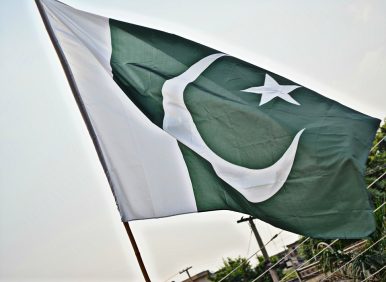By Umair Jamal
 With Pakistan’s next general election only a month away, political parties in the country are scrambling to announce their candidates across the country. At the moment, one cannot logically predict which party is likely to form the next government due to a number of factors that are at play concerning the country’s domestic politics. Currently, the Pakistan Muslim League-Nawaz (PML-N), which just concluded its term in office, appears to be a strong contender when it comes to forming the next government at the federal level. However, the party’s internal divisions, which may not have become public, are likely to cost it a large number of seats on election day. The party has not only lost major political heavyweights to other parties, but is also facing an internal succession crisis, which is only going to widen when the election period is over. The party’s former interior minister has decided to contest the next general election as an independent candidate, offering validation to already rampant fears that groupings in the party have developed to serious levels.
With Pakistan’s next general election only a month away, political parties in the country are scrambling to announce their candidates across the country. At the moment, one cannot logically predict which party is likely to form the next government due to a number of factors that are at play concerning the country’s domestic politics. Currently, the Pakistan Muslim League-Nawaz (PML-N), which just concluded its term in office, appears to be a strong contender when it comes to forming the next government at the federal level. However, the party’s internal divisions, which may not have become public, are likely to cost it a large number of seats on election day. The party has not only lost major political heavyweights to other parties, but is also facing an internal succession crisis, which is only going to widen when the election period is over. The party’s former interior minister has decided to contest the next general election as an independent candidate, offering validation to already rampant fears that groupings in the party have developed to serious levels.
The PML-N’s internal divisions are only compounded by the military as well as the judiciary’s aversion toward the party’s leadership. During the last couple of years, both institutions have gone to lengths to not only question the PML-N’s governance priorities but have also made efforts to isolate the party’s role in national politics. Despite such efforts on the part of these two major state institutions, PML-N still remains relatively strong in terms of electoral politics. While the party should not be expected to produce a clear majority in the parliament, it should be able to attain an adequate number of National Assembly (NA) seats to become part of any negotiations to form the next government.
The other two major political parties that should be expected to secure a large number of National Assembly seats are the Pakistan People’s Party (PPP) and the Pakistan Tehreek-e-Insaaf (PTI). PTI’s electoral foothold has grown rapidly over the last few years due to a number of electable politicans joining the party. Moreover, the party has been able to make alliances with various regional political groups in Punjab, the most important province for any political party to secure a place at the federal level. This places the PTI in a strong position, in contrast to the last general election when it was isolated in terms of electables in the party. On the other hand, the PPP is likely to continue its traditional dominance in the province of Sindh. The province’s rural regions are likely to vote for the PPP while the urban regions of the province will continue to be considered swing voters.
A number of smaller political parties and independent candidates should also be expected to make their presence felt in a situation where none of the major political parties has gained a majority in the parliament. Such an environment will also bring into play seats won by Islamist groups: while right-wing groups in the county have never gained a large number of seats in parliament, the relevance of a fairly small number of NA seats will be crucial for any mainstream political party to make it to the capital.
Any electoral outcomes that fail on these dimensions will not only bring in a weak federal government, which will be a result of electoral and political compromise, but will also offer opposition parties space to weaken an already fragile government. This doesn’t bode well for the fate of the democratic project in Pakistan, for this is is likely to increase the influence of non-elected institutions in the country’s politics. The country’s political elites, regardless of their partisan affiliations, appear ready to appease undemocratic institutions to ensure and sustain their political survival in national politics. Ongoing political activity related to the upcoming general election may be a part of the constitutional requirement, but the prevailing environment of intrigue, prejudice, and alleged interventions of various state institutions to manipulate the whole electoral process has only undermined Pakistan’s democracy.
The next government is likely to begin its tenure on a weak footing with its sole focus being survival rather than governance.
No comments:
Post a Comment